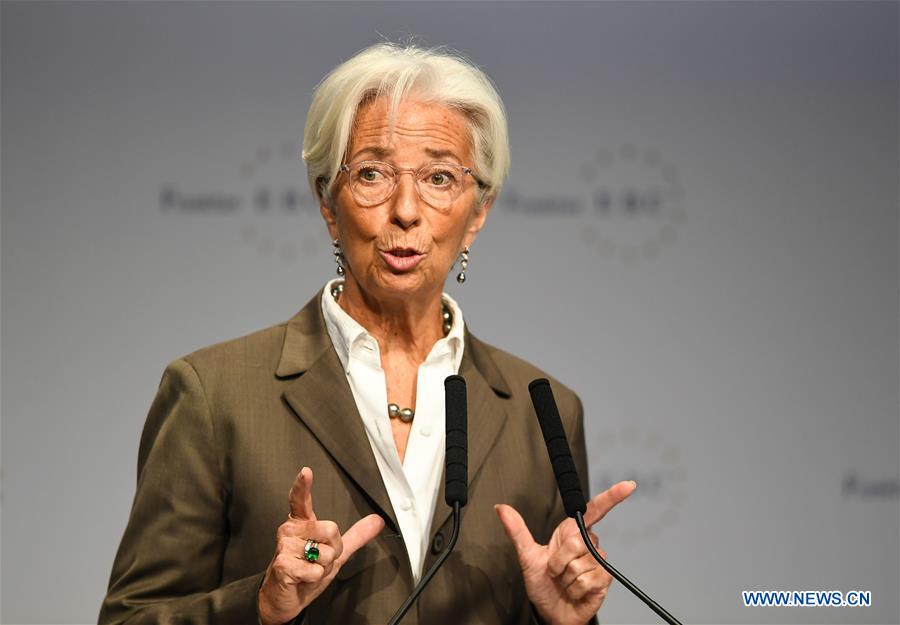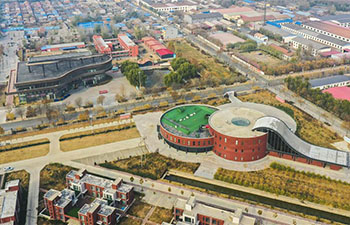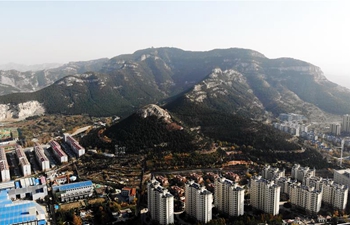
President of the European Central Bank (ECB) Christine Lagarde addresses the 29th Frankfurt European Banking Congress in Frankfurt, Germany, Nov. 22, 2019. The new president of the European Central Bank (ECB) Christine Lagarde on Friday stressed the need for moving towards a new European policy mix to drive the internal growth of the euro zone. (Xinhua/Lu Yang)
FRANKFURT, Nov. 22 (Xinhua) -- The new president of the European Central Bank (ECB) Christine Lagarde on Friday stressed the need for moving towards a new European policy mix to drive the internal growth of the euro zone.
Lagarde, while addressing the 29th Frankfurt European Banking Congress, said the ECB's monetary policy will undergo a strategic review that is "due to begin in the near future," adding that the ECB is continuously monitoring the side effects of its policies.
On the other hand, she noted that the monetary policy could achieve its goal faster and with fewer side effects if other policies were supporting growth alongside it.
One key element of the policy mix is the fiscal policy, Lagarde said, calling for investment that is "more productive, more digital and greener" as an important part of the response to current challenges.
She said the governments in the euro zone have a common interest in maintaining sufficient levels of public investment, which has been some way below its pre-crisis levels.
She also called for "empowering" the European internal market by completing the digital single market, the capital markets union and the single market in services, which she said are "building blocks of the European economy of the future", in addition to the important task of completing the economic and monetary union.
Lagarde cited new studies which estimated that the full implementation of the Services Directive would lead to gains in the order of 380 billion euros (420 billion U.S. dollars), while completing the digital single market would yield annual benefits of more than 170 billion euros.
The European economy has been facing various challenges this year. The European Commission in early November cut its forecasts for the area's growth in 2019 and 2020 to 1.1 percent and 1.2 percent, respectively. Germany, the bloc's largest economy, narrowly avoided a technical recession in the third quarter.
In an analysis of the global economy, Lagarde noted changes of "a more structural nature," apart from uncertainties in global trade that have been affecting Europe's export sector.
She spoke of the "moment of opportunity" for Europe, saying that Europe needs to innovate and invest to respond to these challenges and preserve its competitiveness in the longer run, highlighting the benefits of a strong domestic demand in providing resilience and facilitating rebalancing.
Succeeding Mario Draghi, Lagarde officially took office as new chief of the ECB in November. The policy package that the ECB rolled out in September, including an interest rate cut and a massive bond-buying program, has been drawing mixed responses from the market and the political circles.











